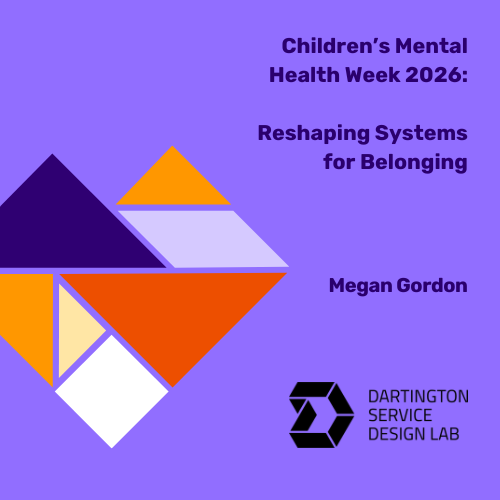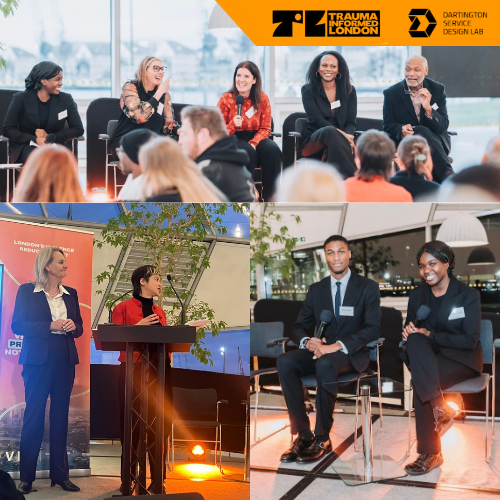Latest News
Keep up with what we’re thinking and doing. You can get our regular newsletter delivered to your inbox by signing up here.
Children’s Mental Health Week 2026: Reshaping Systems for Belonging
For Children’s Mental Health Week 2026, we’re thinking about what it takes to reshape systems to better support children and young people’s sense of belonging.
Doing the work together: Insights from our Anti-Racism Action Framework launch
5th December 2025
We recently came together with over 150 researchers, designers and practitioners to launch our Anti-Racism Action Framework: Centring Equity in Research and Design Practice. Launching this framework now feels particularly urgent as, against a backdrop of increasing mobilisation by the far-right and ongoing harmful and hateful rhetoric, many of us are grappling with how to take action that is meaningful, sustained and structurally focused rather than symbolic or episodic.
Trauma-Informed Practice: Strengthening Collaboration for Collective Change
2nd December 2025
Recently we celebrated the launch of the Trauma-Informed London website and resources. The event brought together practitioners and leaders from local authorities, healthcare, policing and the voluntary sectors under a shared ambition: to reimagine how services function in London and how Londoners experience, access and engage with those services every day. The insights shared in the room paint a picture of what it takes to embed trauma-informed practice meaningfully and at scale, with learning relevant for services and systems beyond the capital.
Confronting Structural Violence: Embedding Anti-Racist and Trauma-Informed Practice in Systemic Change
29th October 2025
Communications Lead, Megan Gordon, reflects on how our work in systemic change can transform relationships of power.
Power, Participation and Systems Change: What Does it Mean to Create Meaningful Spaces for Participation?
24th October 2025
Senior Researcher, Ediane Santana de Lima, shares her insights on what it takes to create meaningful spaces for participation that shift power.
Making Sense of Complexity: Participatory Group Model Building in Action
30th September 2025
Systemic Change Lead, Megan Keenan, shares some reflections on approaches to making sense of complexity.
Four Key Ingredients for a Best Start in Life Strategy That Works
12th September 2025
We think that a recipe for a Best Start in Life strategy that is meaningful, responsive to the diverse needs of local communities and sustainable has four key ingredients. In this article our Chief Executive, Tim Hobbs, reflects on those four components.
Transformational Best Start in Life Strategies and Best Start Family Hubs
31st July 2025
Announcing a new and unique offer from Dartington Service Design Lab, Ideas Alliance CIC and Collaborate CIC to support local partnerships to develop and deliver Best Start in Life Strategies and Best Start Family Hubs.
Building shared thinking around outcomes
9th July 2025 - Reflections on what it takes to build shared thinking around outcomes, with our friends at the Common Outcomes for Children and Young People Collaborative.
Lots of hubs, where are the spokes? - What the 10-Year Health Plan for England, Family Hub expansion and commitments to Local Government reform mean for babies, children and young people
7th July 2025 - The end of last week saw three major policy announcements with big ambitions. Each are rich in rhetoric about prevention, localism, and improving outcomes for children and families. We’re reflecting on what this all really means for babies, children and young people and where the risks and opportunities lie.










